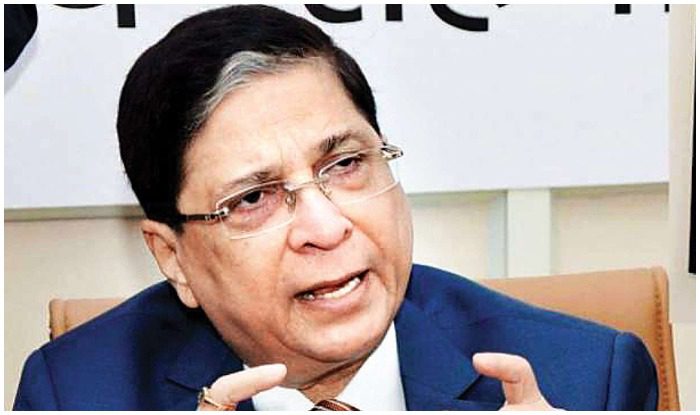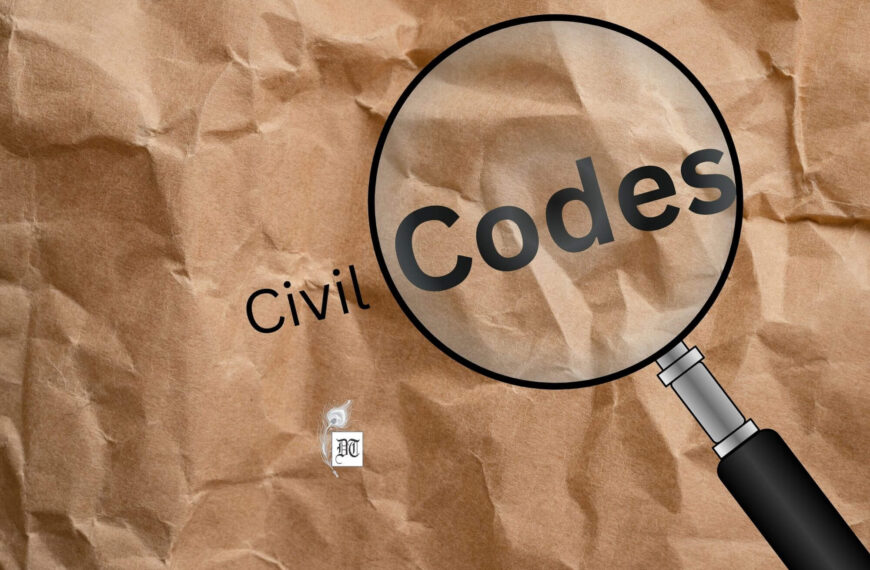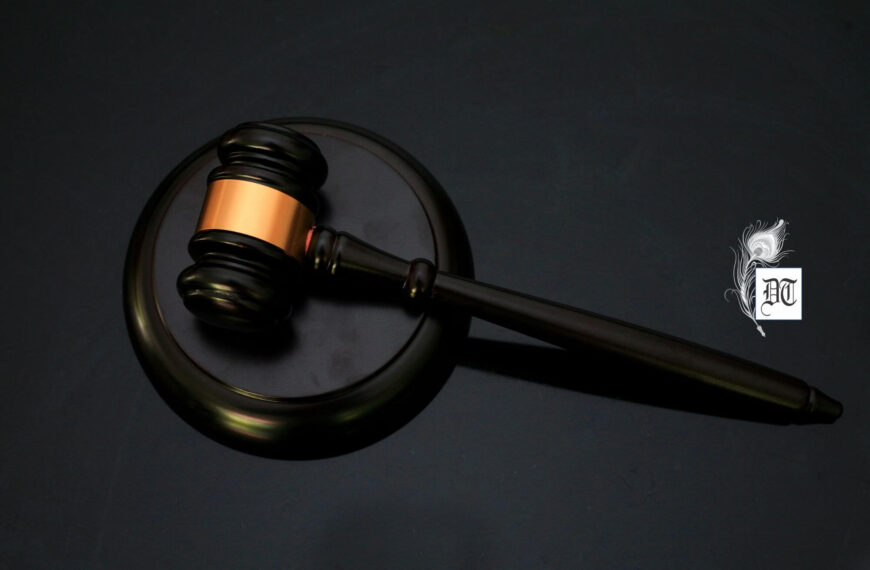A total of 71 Rajya Sabha MPs signed the motion and 64 out of them are Rajya Sabha MPs, more than the 50 required for the safe passage of the motion and discuss threadbare the CJI’s “misbehaviour”, rip his reputation apart and hope some of it sticks to the ruling dispensation. ‘But when?’ is the question – CJI Dipak Misra retires in October this year! It will take six months for the motion to be admitted. Here’s a report, for Different Truths.
‘The day after’ is often a good three words to begin a story. Especially, if the day before was one of the momentous occasion. A day of setback or stupendous success. The Congress on Thursday was with its back to the wall after the verdict on the Judge Loya death case and the BJP stood at ease. Friday, the Congress hit back. It moved a motion to impeach CJI Dipak Misra on five counts of “misbehaviour”.
 At high noon on Friday, Members of Parliament of the Opposition met the Vice President and Rajya Sabha chairman Venkaiah Naidu and submitted to him the impeachment motion, which requires a minimum of 50 Members of Parliament to pass. Lawyer and Congress Rajya Sabha MP Kapil Sibal presented the Opposition case to the media. A total of 71 Rajya Sabha MPs signed the motion and 64 out of them are Rajya Sabha MPs, more than the 50 required for the safe passage of the motion and discuss threadbare the CJI’s “misbehaviour”, rip his reputation apart and hope some of it sticks to the ruling dispensation.
At high noon on Friday, Members of Parliament of the Opposition met the Vice President and Rajya Sabha chairman Venkaiah Naidu and submitted to him the impeachment motion, which requires a minimum of 50 Members of Parliament to pass. Lawyer and Congress Rajya Sabha MP Kapil Sibal presented the Opposition case to the media. A total of 71 Rajya Sabha MPs signed the motion and 64 out of them are Rajya Sabha MPs, more than the 50 required for the safe passage of the motion and discuss threadbare the CJI’s “misbehaviour”, rip his reputation apart and hope some of it sticks to the ruling dispensation.
‘But when?’ is the question – CJI Dipak Misra retires in October this year! It will take six months for the motion to be admitted and either the Rajya Sabha Chairman or the Speaker of the Lok Sabha can reject the motion. Expecting such a setback, it’s being said that the Congress will take the matter to the Supreme Court, where the CJI cannot sit on the bench because he would be under a shadow and “compromised” because of the impeachment motion.
 The Congress says there is “nothing political about the motion” and that the Opposition is doing it solely out of its love for the “independence” of the judiciary which is “paramount”. And that the CJI’s behaviour was without a doubt not above suspicion. “He has to be restrained,” Sibal said. “Yeh Koi Chotti-motti baat nahi hai. This is not instant coffee.”
The Congress says there is “nothing political about the motion” and that the Opposition is doing it solely out of its love for the “independence” of the judiciary which is “paramount”. And that the CJI’s behaviour was without a doubt not above suspicion. “He has to be restrained,” Sibal said. “Yeh Koi Chotti-motti baat nahi hai. This is not instant coffee.”
The problem for the Opposition is that going by the Constitution, a judge can be targeted only with regard to “misbehaviour” and not because the judge gave a judicial order which was not palatable to a political party. But the fact remains that the verdict in the Judge Loya case went against the ‘lobby’ and the 3-judge bench headed by the CJI was scathing against the PIL-brigade guided by a “veiled hand”, and therefore within the ambit of motivation.
The question, therefore, boils down to: Would the Congress/Opposition have moved the motion to impeach the CJI if the Judge Loya case verdict had gone in favour of the PIL-petitioners? Sibal says the Opposition waited “one month, two months and three months” after the presser held by the four senior-most SC judges to think of impeaching the CJI. That amounts to selective amnesia because the very evening of that unprecedented press conference the Congress held a presser of its own and Congress President Rahul Gandhi came on and asked for an “investigation” into the “mysterious death of Judge Loya.
The long and short of it is, everything about this impeachment move is political. Even if there is merit to the impeachment motion. Some of the charges of “misbehaviour” go back a year and more, right back to CJI Misra’s advocate days. And CJI Misra was appointed at the time of Congress rule.
Also, a section of Congressmen is also against the impeachment move. Former Prime Minister Manmohan Singh, for one. And Salman Khurshid, another of Congress Party’s legal-eagles. Sibal & Co. must have got the permission of Congress President Rahul Gandhi. That is for sure. But apparently, even P Chidambaram is against the motion. And Abhishek Manu Singhvi, too. Sibal said the CJI should have set his “house in order” after the presser of the four judges, but what about the Congress house, is it in order?
There are also some very important cases that have to be decided in the near future and they include the Ayodhya Ram Mandir case, which the Congress does not want to be taken up before the 2019 elections for purely political and electoral reasons. At the end of the day, the impeachment motion only cements the notion that if a CJI and the Supreme Court use their “discretion” to rule cases in favour a particular party then it is ‘okay’ but if the judgement goes against a party, then the CJI has “misbehaved”.
It is clear as daylight that the move is to ensure that the CJI does not sit on a judgement in the Ayodhya Ram Mandir case. This is the first time that a CJI is being sought to be impeached and that is another “unprecedented” in a year of “un-precedents”. The fact is, credibility has taken a punch, the credibility of politicians, political parties and institutions.
Sushil Kutty
©IPA Service
Photos from the Internet





 By
By
 By
By

 By
By